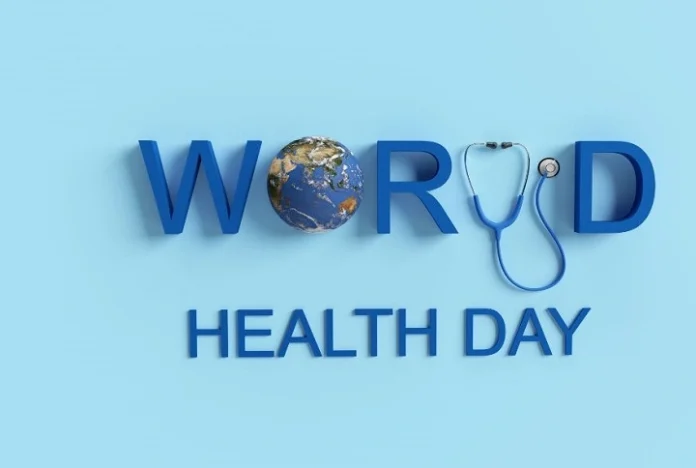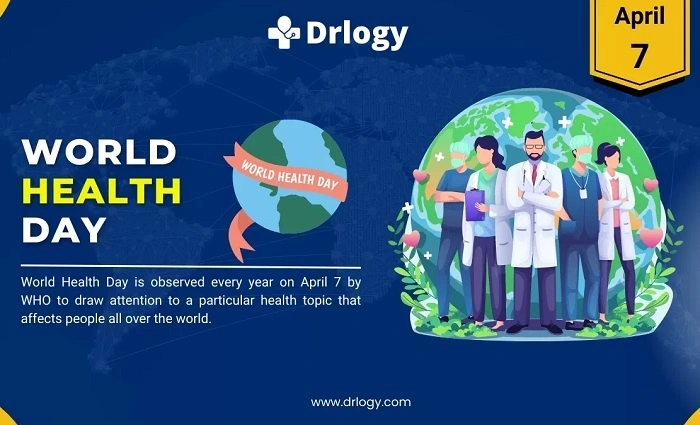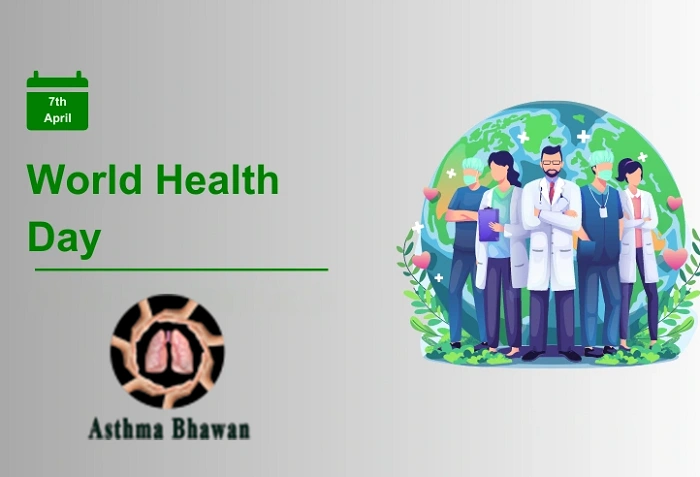Every year on April 7, we celebrate World Health Day—a global awareness day aimed at highlighting health challenges and inspiring action to tackle them. Established by the World Health Organization (WHO) in 1948, World Health Day serves as a platform to shine a light on key health issues affecting communities worldwide. For 2024, the theme is “Universal Health: Good Health for All, Everywhere.”
The 2024 theme emphasizes the critical need for equitable access to health services and highlights the importance of inclusive, affordable health care. As we look forward to this year’s World Health Day, let’s delve into why this theme is crucial and how individuals, organizations, and nations can contribute toward a healthier world.
A Brief History of World Health Day

World Health Day was first celebrated in 1950, two years after the founding of the World Health Organization (WHO). Its initial objective was simple: to bring people’s attention to a particular health issue, encouraging global dialogue and coordinated action. Over the years, each World Health Day has carried a specific theme, allowing WHO to address various aspects of health, from mental well-being and food safety to climate change and global disease prevention.
The annual themes reflect changing global health priorities, but the core message remains consistent—ensuring that health is a fundamental human right.
The 2024 Theme: Why “Universal Health” Matters More Than Ever
The theme for 2024, “Universal Health: Good Health for All, Everywhere,” captures an essential goal. Health care should be accessible, affordable, and high-quality for every individual, regardless of economic, geographical, or social status. Let’s explore why this focus on universal health care is so critical.
Inequalities in Health Care Access
Across the world, health care access remains uneven. While some countries offer robust public health systems, others grapple with limited resources, leading to significant disparities in care quality. Rural communities, for instance, often face a lack of nearby health facilities, while low-income populations might be unable to afford necessary treatments. These gaps mean that millions still struggle to receive even basic health care.
The Financial Burden of Health Care
The high cost of health services pushes approximately 100 million people into extreme poverty every year. In many low- and middle-income countries, out-of-pocket payments for health care services are common, creating financial strain on families. Universal health aims to reduce these costs, allowing individuals and families to access essential services without risking their financial security.
Health Crises and Preparedness
Recent global health emergencies, like the COVID-19 pandemic, underscored the importance of robust health systems that are accessible to everyone. Countries with well-resourced, inclusive health systems fared better during the pandemic, highlighting the urgent need for universal health frameworks.
Key Challenges in Achieving Universal Health
The path to universal health is not without obstacles. Here are some of the key challenges that need addressing to make health care accessible to everyone.
Funding and Resource Allocation
Implementing universal health care requires significant financial investment. Many governments face budget constraints, making it difficult to allocate funds to health care without cutting from other critical sectors. In addition, some countries lack the infrastructure necessary to support a comprehensive health system.
Health Care Workforce Shortages
The world faces a growing shortage of health care professionals, especially in rural and remote areas. In countries with fewer resources, doctors and nurses may be concentrated in urban areas, leaving rural communities underserved. Addressing workforce distribution is vital for equitable health care access.
Managing Non-Communicable Diseases (NCDs)
The rise of non-communicable diseases (NCDs), such as heart disease, cancer, diabetes, and respiratory illnesses, poses a challenge to health systems. With lifestyle changes and longer life expectancies, NCDs have become leading causes of mortality globally. Health systems must adapt to manage these diseases effectively and sustainably.
Addressing Health Literacy
For health care to be truly accessible, people need to understand and make informed choices about their health. Low health literacy remains a barrier in many parts of the world, often due to inadequate education or cultural stigmas. Empowering individuals with knowledge is crucial to universal health.
Goals and Action Steps for World Health Day 2024
In line with the 2024 theme, WHO has outlined several goals and recommended actions to help nations and communities work towards universal health. Here are some of the key steps:
Expanding Access to Primary Health Care
Primary health care forms the foundation of universal health, serving as the first point of contact between individuals and the health system. Expanding access to primary care ensures people can receive timely, essential services without traveling far or incurring high costs. Strengthening primary health care can prevent many minor health issues from escalating into severe, costly conditions.
Investing in Health Infrastructure
Creating resilient health systems requires investment in infrastructure. This includes constructing health facilities in underserved regions, ensuring reliable transportation for medical supplies, and using digital health solutions to reach remote areas. Proper infrastructure also means better preparation for health crises, allowing for a faster, more coordinated response.
Implementing Health Education Programs
Health literacy empowers individuals to take control of their well-being. WHO recommends implementing health education programs in schools, communities, and workplaces to improve public knowledge about disease prevention, nutrition, and mental health. Education also breaks down cultural stigmas around health, creating a more inclusive environment for everyone.
Training and Retaining Health Care Professionals
To build a robust health system, countries must train and retain a skilled health workforce. This includes expanding medical training programs, offering competitive salaries, and creating professional development opportunities for health workers, especially in underserved regions.
Reducing Out-of-Pocket Payments
Reducing direct payments for health services can significantly ease the financial burden on individuals and families. WHO encourages countries to work toward financial protection policies, such as health insurance programs or subsidies, to ensure that health care remains affordable for all.
How You Can Participate in World Health Day 2024
Everyone can contribute to the goals of World Health Day, regardless of where they are in the world. Here are some ways to get involved and make a positive impact on global health.
Educate Yourself and Your Community
Learn about the issues surrounding universal health care and share this information with others. Knowledge-sharing can help build support for health initiatives in your community, creating a foundation for advocacy.
Volunteer for Local Health Initiatives
Many communities organize health camps, screenings, or educational workshops on World Health Day. Volunteering for these activities can make a tangible impact on local health and raise awareness about the need for accessible care.
Advocate for Policy Change
Engage with local representatives and advocate for policies supporting universal health care. A unified community voice can have a powerful influence on policymakers, encouraging them to prioritize health initiatives and funding.
Promote Healthy Lifestyles
Good health starts with individual habits. Promote healthy practices, such as balanced eating, regular exercise, and mental health care, within your family, workplace, and community.
Support Health Organizations
Consider donating to or volunteering with organizations that work toward equitable health. Many non-profits work tirelessly to provide care, spread awareness, and promote health policies that align with universal health goals.
Future of World Health: A Vision for 2030 and Beyond
While World Health Day is an annual event, the goals it emphasizes have long-term implications. The United Nations’ Sustainable Development Goal (SDG) 3 envisions “Good Health and Well-being” by 2030, aligning closely with the objectives of World Health Day 2024.
Advancing Digital Health
Digital health innovations have the potential to revolutionize universal health. Technologies like telemedicine, electronic health records, and mobile health apps offer ways to reach underserved areas and streamline care delivery.
Collaborative Global Efforts
Solving global health issues requires collaborative efforts between nations, international organizations, and private sectors. Increased funding, joint research initiatives, and knowledge-sharing partnerships can bridge the gaps in health care access and create a unified response to future health challenges.
Climate Change and Health
As climate change continues to impact public health, future health policies will need to address the interconnections between climate and health, particularly for vulnerable populations. Climate resilience will become an essential component of universal health, ensuring communities can withstand the health impacts of a changing environment.
World Health Day 2024 invites us to reflect on the importance of health equity and the collective actions required to achieve it. “Universal Health: Good Health for All, Everywhere” is more than a theme; it’s a call to action for a future where everyone can enjoy a healthy, fulfilling life.
By fostering collaboration, investing in resources, and empowering individuals, we can build a world where health truly knows no boundaries. As we celebrate World Health Day this year, let’s remember that every step toward universal health is a step toward a brighter, healthier future for all.



